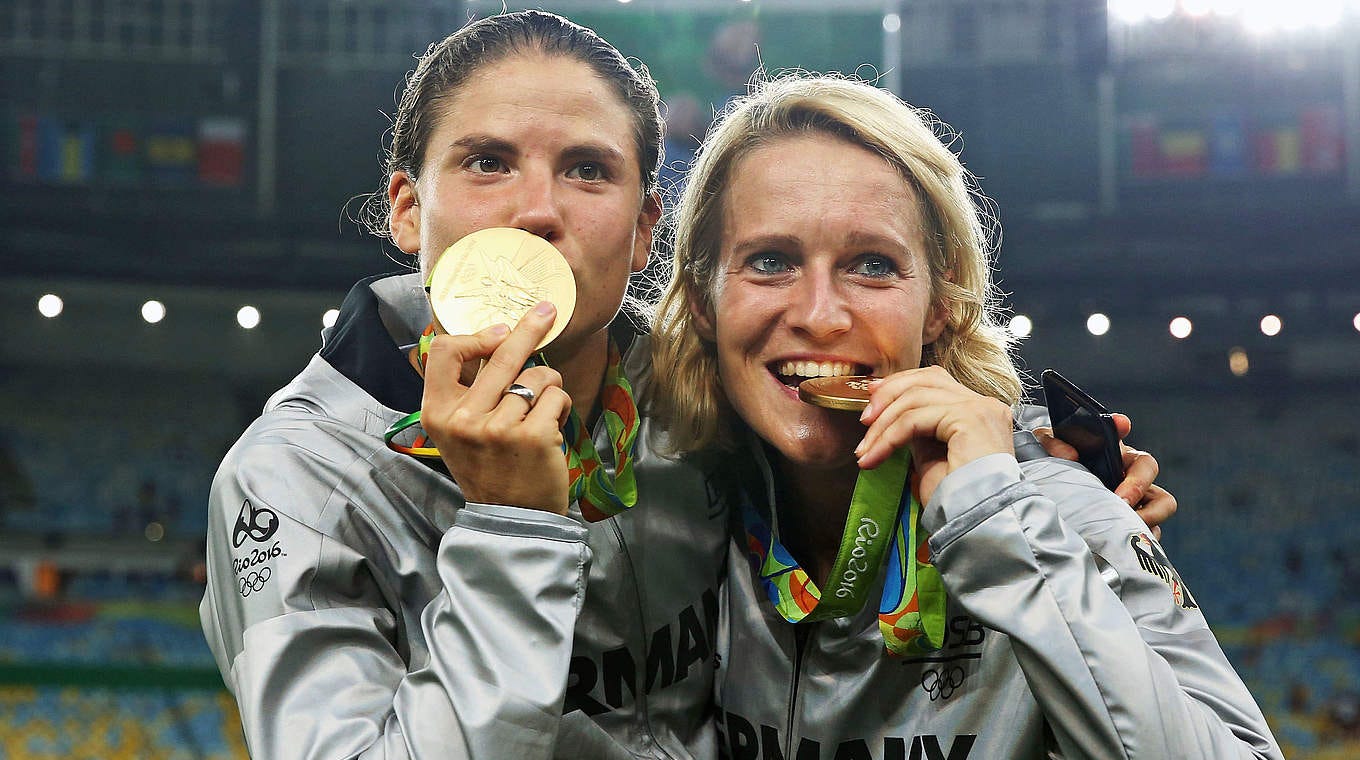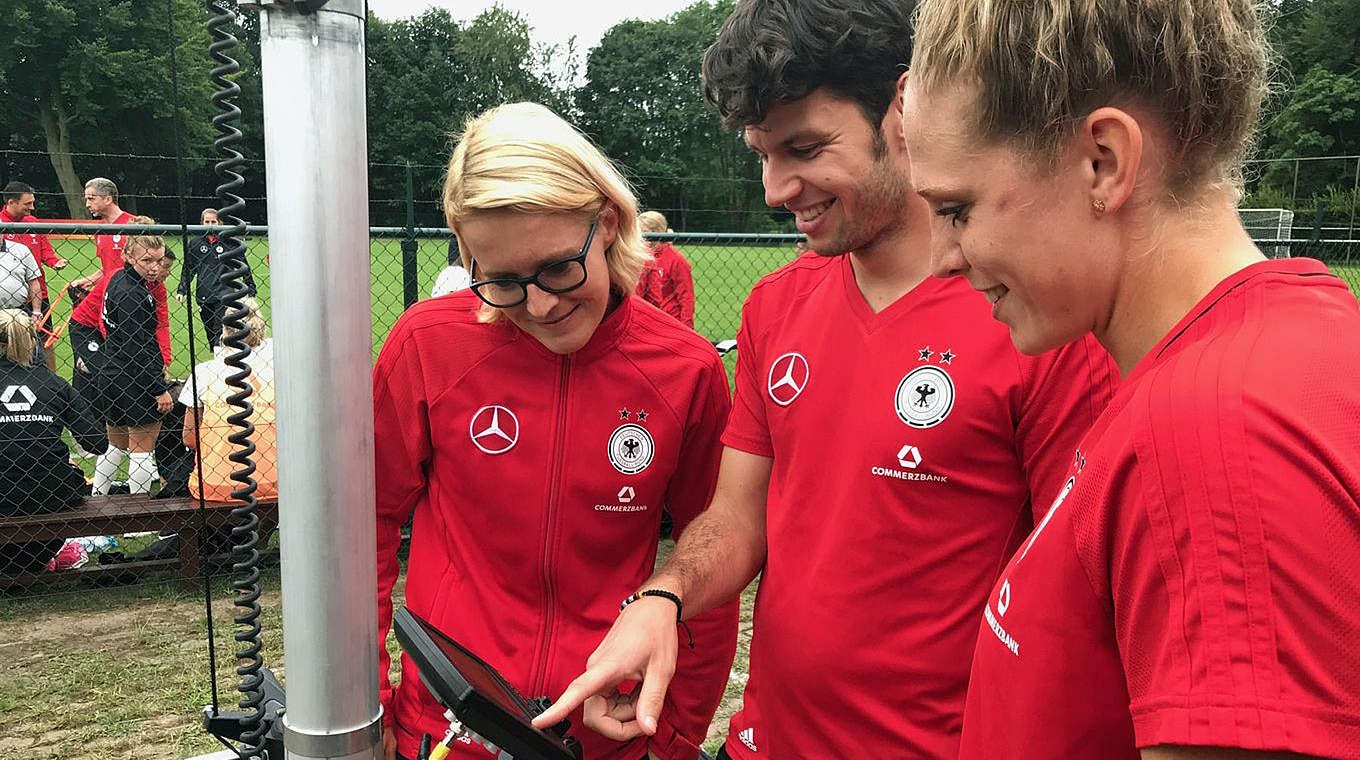How former Germany stars are helping to develop the next generation
Almost a dozen former internationals are currently working within the Germany youth ranks in a purposeful strategy put in place by the DFB.

Germany remains one of the most successful nations in the women’s game, and certainly the most successful in Europe.
The nation won back-to-back World Cups in 2003 and 2007 and until 2017 dominated the landscape of European football, winning eight European Championships between 1989 and 2013.
An Olympic Gold medal followed in 2016, but after a shock defeat to Denmark in 2017, the rest of Europe started to catch up, with some overtaking, and the country didn’t reach a major final again until last summer’s European Championships.
Last year ushered in somewhat of a new era for Germany, with lots of exciting young talent on show, such as Lena Oberdorf, Jule Brand and Klara Bühl.
The DFB has come up with a strategy many nations dream of, but find hard to execute, and that is to employ many former internationals within their youth teams to help develop the next generation of German youngsters, both on and off the field.
Check out over 100 more unique stories in WFC’s Premium section, available for just £45 for 12 months, paid in one go, or a £6 a month rolling subscription.
All subscriptions come with a 7-day free trial to allow you to explore our full archive.
Plus, guarantee you everything that is to come over the next 12 months…
Currently, the number of former top-level players working in the youth ranks in various departments is in double figures, with current senior head coach Martina Voss-Tecklenburg also a former Germany international herself. On her staff is Britta Carlsson, another former European Champion, while their most capped player and top scorer, Birgit Prinz, works as a psychologist and another of their most successful players, Doris Fitschen, also works behind the scenes.
In the under 20s, there is Ariane Hingst – who will soon leave for Viktoria 1889 Berlin – and former goalkeeper Silke Rottenberg, while former world champion and captain of the 2016 Olympic side Saskia Bartusiak oversees match analysis and scouting for both the under 20 and under 19 age groups.
“I hung up my boots for the national team after the Olympics and at club level soon after,” says Bartusiak. “I was giving more and more thought to what I could do and I’d already maintained close contacts with people at the DFB.”
Despite her vast experience as a player, Bartusiak started out as merely an intern in the department, but is now responsible for the department at the two age group levels.
“It’s coordinating the efforts of colleague who go out and sit in the stands and watch our players. I’ve been doing this for six years now.
Another Germany legend, Melanie Behringer, is an assistant coach for both the under 19 and under 16 groups, and the list goes on and on. The under 17 head coach, Sabine Loderer, didn’t play at international level but won the Bundesliga with Bayern Munich, while her assistant, Marie-Louise Eta, won the U20 World Cup in 2010.
Another assistant coach of the under 17s, Lena Lotzen, was part of the 2013 Euros winning team, and the under 17s is overlooked by Annike Krahn, whose career on the field followed that of Bartusiak’s, in that they won the exact same major honours for their country.
“It’s interesting, because everyone has a team manager but nobody can ever decide what a team manager actually does,” laughs Krahn. “I’m not involved with the sporting side, the tactical stuff, I’m responsible for the organisation stuff. I book hotels, sort travel, often doing emotions management too I would say! I essentially coordinate the whole team.”
Keep reading with a 7-day free trial
Subscribe to Women's Football Chronicles to keep reading this post and get 7 days of free access to the full post archives.



